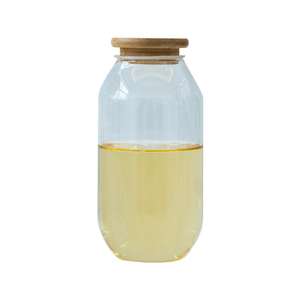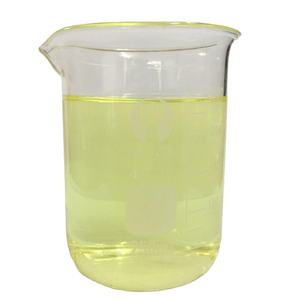Introduction to Penetrating Seal Treating Agents: An Important Advancement in Concrete Defense
Penetrating seal treating representatives (PSCAs) have actually emerged as a transformative service in concrete technology, using twin advantages of surface securing and interior hydration enhancement. Unlike traditional membrane-forming treating substances, PSCAs penetrate deep into the concrete matrix, responding chemically with complimentary lime and various other byproducts to form insoluble crystalline frameworks. This response not just seals micro-cracks and capillary pores yet likewise boosts compressive toughness and long-term durability. As infrastructure demands expand for more resistant and lasting products, PSCAs are playing a significantly vital role in expanding the life span of concrete frameworks.
(Penetrating Seal Curing Agents)
Chemical Make-up and Working Mechanism
Penetrating seal curing agents are usually made up of silicates– most typically lithium, sodium, or potassium silicates– in addition to reactive stimulants and surfactants that enhance infiltration deepness and chemical sensitivity. Upon application, these agents penetrate the permeable structure of fresh or solidified concrete and respond with calcium hydroxide, a result of concrete hydration, to create calcium silicate hydrate (C-S-H) gel and insoluble crystalline precipitates. These formations efficiently block water ingress, chloride ion penetration, and carbonation, which are primary reasons for concrete deterioration. The self-sealing capability of PSCAs makes them particularly beneficial in hostile settings such as marine frameworks, wastewater therapy plants, and bridge decks.
Benefits Over Traditional Healing Techniques
Standard curing techniques, consisting of wet cloth, ponding, and membrane-forming compounds, commonly drop short in regards to efficiency, labor strength, and environmental effect. On the other hand, permeating seal curing representatives use a much more efficient, sturdy, and environment-friendly alternative. They do not vaporize or weaken over time, eliminating the demand for duplicated applications. In addition, because they chemically bond with the concrete substrate, PSCAs give permanent defense without changing surface visual appeals or slip resistance. Their usage additionally contributes to energy financial savings by decreasing the need for maintenance and repair, therefore reducing the lifecycle price of concrete structures.
Application Across Framework and Industrial Sectors
The versatility of penetrating seal curing agents has actually brought about their adoption across a vast array of building and construction applications. In facilities tasks such as freeways, airports, and tunnels, PSCAs assist shield versus freeze-thaw damages, deicing chemicals, and abrasion. In commercial floor covering, they enhance dust-proofing and put on resistance, improving indoor air quality and decreasing upkeep downtime. Residential and commercial structures benefit from boosted dampness resistance in foundations, cellars, and parking lot. Additionally, their compatibility with numerous types of concrete– consisting of green concrete with high fly ash or slag web content– makes them a recommended selection for lasting building practices intending to lower symbolized carbon.
Market Trends and Technical Advancement
The global market for penetrating seal healing agents is broadening as a result of climbing need for high-performance building materials and stricter regulatory standards on structure resilience and sustainability. Suppliers are purchasing R&D to develop next-generation PSCAs with improved infiltration depth, faster response kinetics, and minimized application times. Innovations include hybrid formulations that integrate silicate-based chemistry with nano-silica or polymer-modified systems, using premium efficiency in severe problems. Furthermore, clever distribution systems such as fogging and low-pressure spray modern technologies are being taken on to ensure uniform protection and optimum material use. Digital tools like moisture sensors and anticipating analytics are additionally being integrated to monitor curing performance in real-time.
Environmental Effect and Sustainability Considerations
Penetrating seal curing representatives are typically taken into consideration ecologically benign contrasted to solvent-based sealers and traditional curing membrane layers. A lot of solutions are water-based, non-flammable, and produce minimal unpredictable natural compounds (VOCs). However, worries remain regarding the sourcing of raw materials and the capacity for alkalinity-related results throughout manufacturing. To deal with these problems, researchers are checking out bio-based activators, recycled silicate resources, and low-carbon synthesis paths. In addition, the extended life span of treated concrete minimizes the regularity of demolition and reconstruction, lining up with round economy concepts and adding to overall carbon decrease in the constructed atmosphere.
Future Expectation: Smart Materials and Integrated Solutions
( Penetrating Seal Curing Agents)
Looking in advance, the advancement of penetrating seal healing agents will be driven by developments in nanotechnology, smart products, and digital integration. The development of receptive PSCAs that can adapt to altering ecological problems– such as humidity-triggered activation or self-healing habits– might change concrete maintenance techniques. Assimilation with Structure Details Modeling (BIM) and Internet of Points (IoT)-allowed monitoring systems will allow for data-driven choices on material efficiency and upkeep organizing. As cities encounter boosting environment stress and maturing facilities, the adoption of sophisticated treating technologies like PSCAs will certainly be crucial in guaranteeing architectural strength and durability for future generations.
Vendor
TRUNNANO is a supplier of boron nitride with over 12 years of experience in nano-building energy conservation and nanotechnology development. It accepts payment via Credit Card, T/T, West Union and Paypal. Trunnano will ship the goods to customers overseas through FedEx, DHL, by air, or by sea. If you want to know more about potassium silicate, please feel free to contact us and send an inquiry(sales5@nanotrun.com).
Tags: concrete addtives, Penetrating Seal Curing Agents, Lithium-Based Curing Agent Seal Concrete Agent
All articles and pictures are from the Internet. If there are any copyright issues, please contact us in time to delete.
Inquiry us
Error: Contact form not found.

